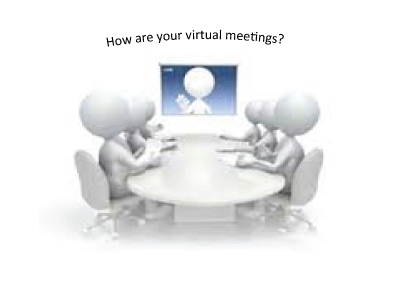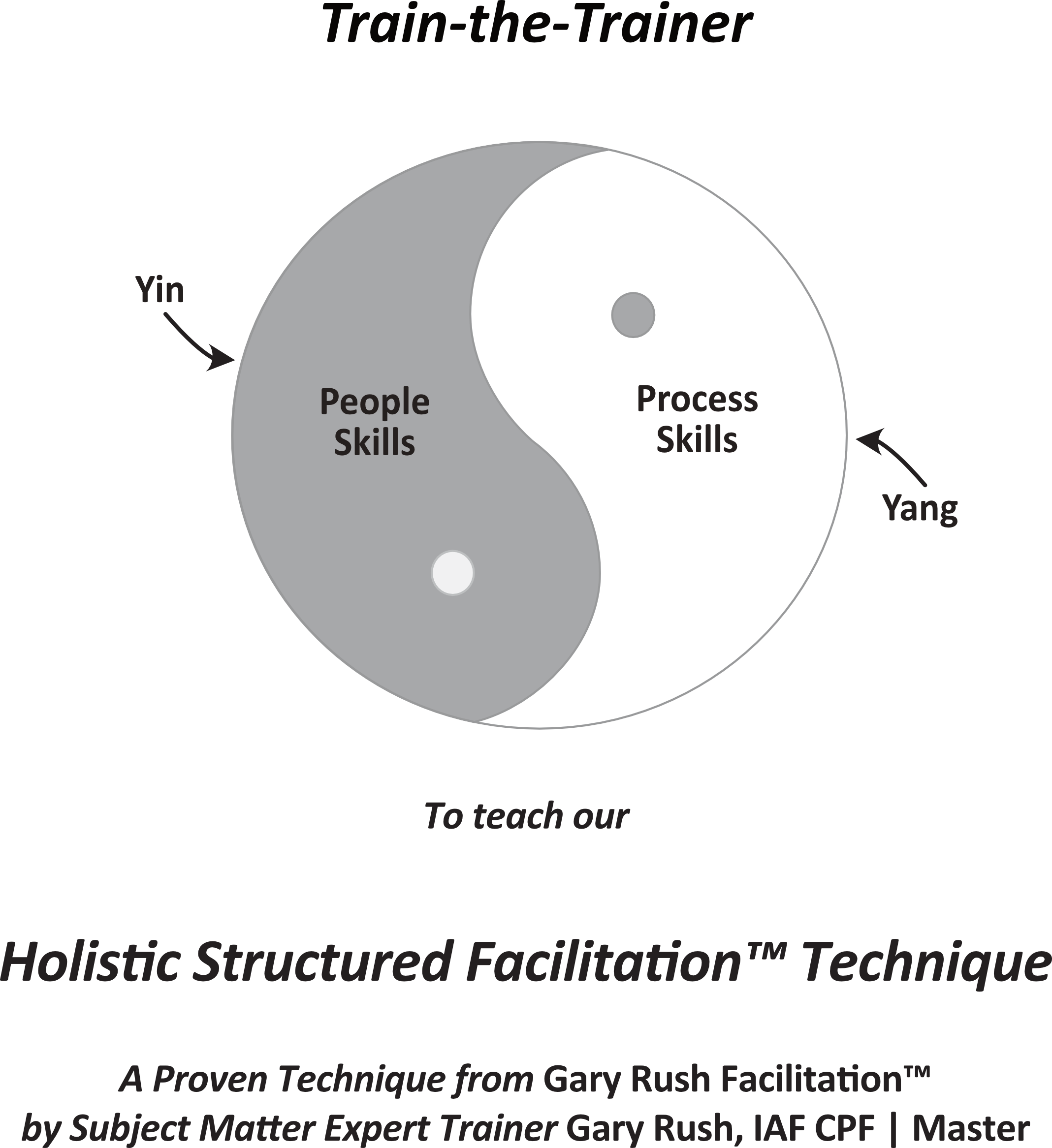June 2010 - The FoCuSeD™ Facilitator eNewsletter

Making Virtual Meetings Productive | Gary Rush Facilitation
Conferences, meetings, and workshops all echo one major concern – “How do you conduct effective and productive virtual meetings?” It seems that the use of virtual meetings is the way of the future and, unlike face-to-face meetings, you have to approach them differently to make them productive.
The Problem
When conducting virtual meetings, facilitators/leaders tend to ignore the basic meeting concepts needed, compounding the problems that virtual meetings already bring. Some issues to keep in mind:
- All of your senses are not engaged.
- Your abilities to lead, listen, and talk become much more important and you lose one of your senses, sight, which greatly impairs communication and hinders many of the tools. According to Albert Mehrabian, a professor at UCLA, human communication is 7% words, 38% tone, and 55% facial expression. In a virtual meeting, at least 55% of our communication is lost and the 38% tonal communication is impaired. Note: Even with video-conferences, visibility is limited.
- Time becomes a major issue.
- Most virtual meetings are scheduled because the participants are remote. Often, that means time zone differences. That has a significant impact on the participants – especially if some are attending during business hours and others at 2:00 am.
- Trust is lacking.
- In virtual meetings, building trust is not easy – interacting personally is best. I facilitated a workshop for a group of people who had been working together for 2 years – via teleconference. I recommended that they come together face-to-face for the first of eight workshops. They did and at the end, I asked, “What worked? What can change?” Every person commented that the greatest benefit was meeting face-to-face and getting to know each other. The subsequent virtual workshops were more productive because the group had bonded and developed trust. Note: I recommend that the first meeting of a multi-session effort be held face-to-face.
In addition to the issues above, the liaise fare attitude about virtual meetings causes facilitators/leaders to put aside effective meeting skills:
- Preparation – to determine the purpose and objectives.
- An agenda – to help the participants get where they want to go.
- Invitation – to state participant’s involvement and provide the date, time, and purpose.
The Answer
Have the participants follow the same basic concepts that apply to face-to-face meetings.
At the beginning (Introductions):
- Welcome everyone and introduce yourself.
- Describe the workshop – this sets the context and the tone.
- Define the time constraints.
- Explain the agenda.
- Describe the norms (ground rules).
- Always precede what you say by stating your name.
- One conversation at a time.
- Be engaged instead of multi-tasking.
- Mute phones only for ambient noise.
- Ask the participants to introduce themselves.
During (the meeting):
- Remind participants always to state their names at the start of their comments.
- Use Active Listening – because participants cannot see what is being said, it helps with communication and comprehension.
- Frequently summarize what was said, restate questions and answers, and check with the group for consensus.
- Frequently remind participants of the time constraints. It is easy for participants to lose track of time when discussing ideas.
- Frequently summarize decisions – it is difficult for the group to know when a decision has been made. Note: Summarize all previous decisions along with the new decision, developing a complete picture.
- If a participant dominates the conversation or talks over others – take the lead and re-enforce the norms.
- Take a 10-minute break every 90 minutes – it gives participants a break and allows you to talk to difficult participants (voice-to-voice if remote or face-to-face if local) to determine the reason.
At the end (follow-up):
- Include Next Steps to help ensure that the workshop output gets implemented.
- Summarize the workshop output, decisions, next steps, action items, etc., to reinforce what the participants accomplished.
Conclusion
Virtual meetings are the way of the future. To be productive, they require effective facilitator/leader skills. ![]()


